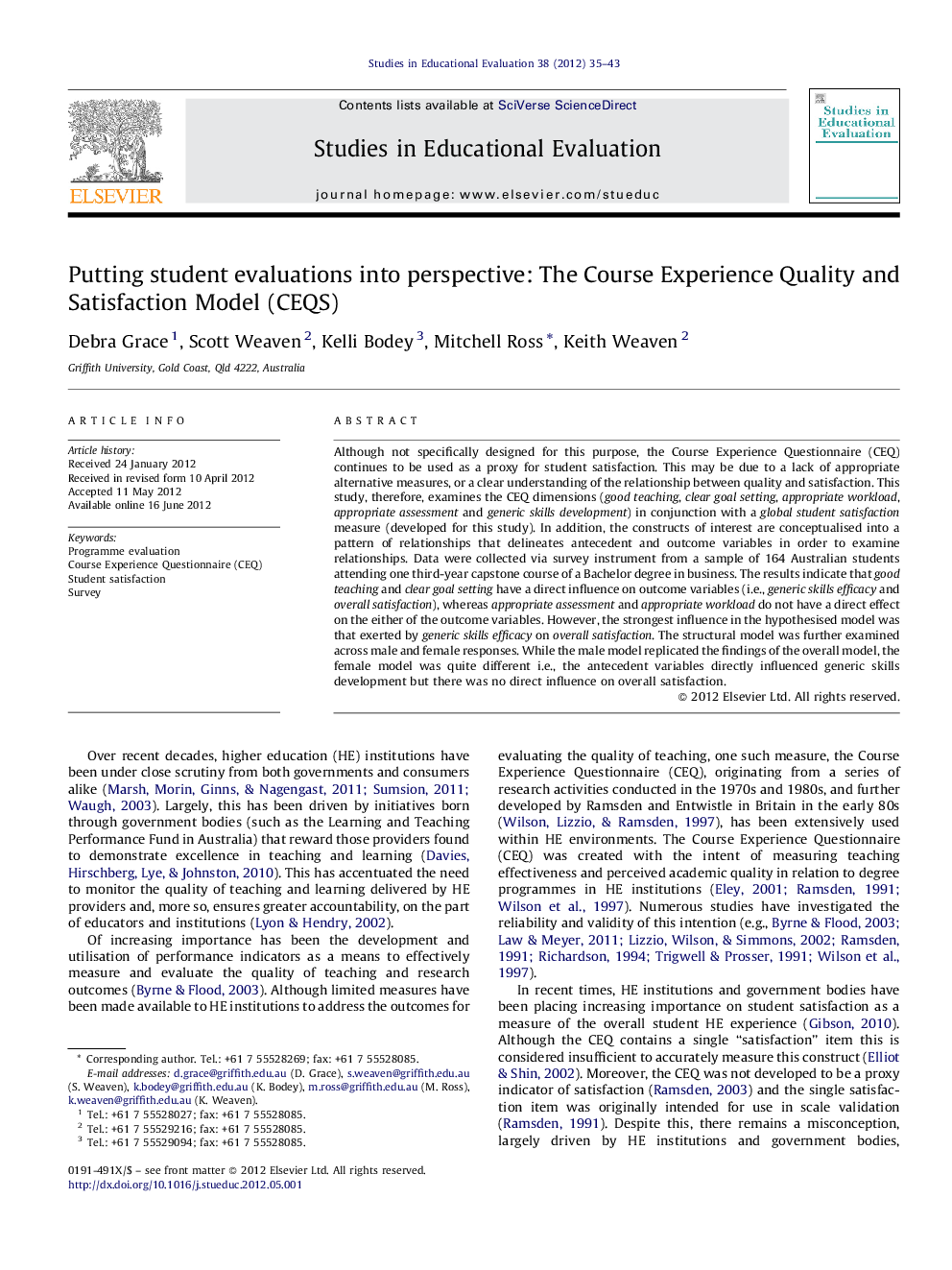| Article ID | Journal | Published Year | Pages | File Type |
|---|---|---|---|---|
| 372735 | Studies in Educational Evaluation | 2012 | 9 Pages |
Although not specifically designed for this purpose, the Course Experience Questionnaire (CEQ) continues to be used as a proxy for student satisfaction. This may be due to a lack of appropriate alternative measures, or a clear understanding of the relationship between quality and satisfaction. This study, therefore, examines the CEQ dimensions (good teaching, clear goal setting, appropriate workload, appropriate assessment and generic skills development) in conjunction with a global student satisfaction measure (developed for this study). In addition, the constructs of interest are conceptualised into a pattern of relationships that delineates antecedent and outcome variables in order to examine relationships. Data were collected via survey instrument from a sample of 164 Australian students attending one third-year capstone course of a Bachelor degree in business. The results indicate that good teaching and clear goal setting have a direct influence on outcome variables (i.e., generic skills efficacy and overall satisfaction), whereas appropriate assessment and appropriate workload do not have a direct effect on the either of the outcome variables. However, the strongest influence in the hypothesised model was that exerted by generic skills efficacy on overall satisfaction. The structural model was further examined across male and female responses. While the male model replicated the findings of the overall model, the female model was quite different i.e., the antecedent variables directly influenced generic skills development but there was no direct influence on overall satisfaction.
► We investigate the relationship between student satisfaction and the CEQ dimensions. ► We find student satisfaction to be influenced by good teaching and generic skills efficacy. ► We find student satisfaction to be not influenced by assessment and workload. ► A new model (CEQS) with a greater emphasis on student satisfaction is proposed.
